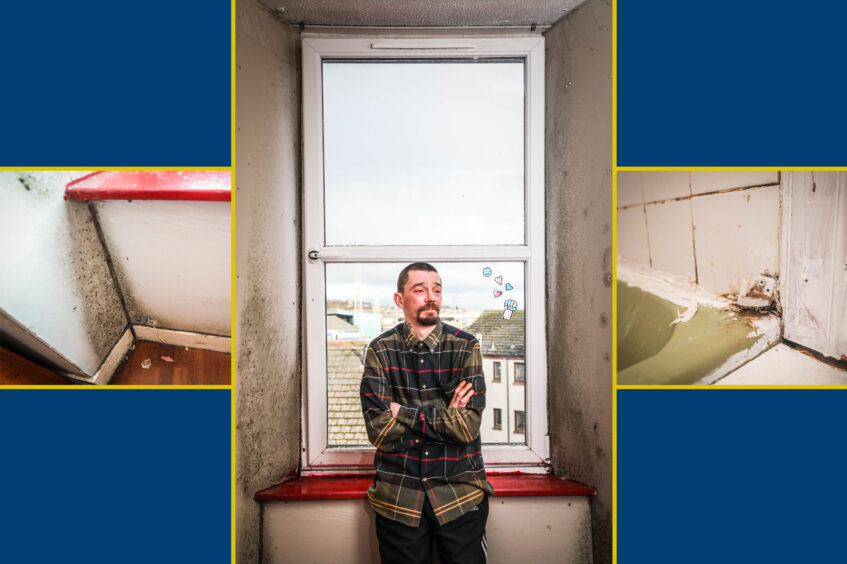
When Mark Ford came home at the end of each day he felt, in his own words, like a “mink”.
He said he felt like a mink because he was living in a private flat with serious faults he claims his property manager had failed to fix.
Now, after calling in Dundee City Council for help, his home has been declared unfit for “human habitation” and the landlord is finally taking action to rectify the issues.
Mark said that before he complained to the council, he and his family had been living with no running hot water and that he struggled to sleep because, when he turned over in his bed, he was faced with black mould covering his wall and around his window.
Mark isn’t alone. In this special investigation by The Courier, we look at the growing number of private tenants across Dundee who say they are living in homes with disrepair.
This investigation reveals:
- Exclusive data from Dundee Citizens Advice Bureau (CAB) showing high numbers of cases of disrepair in the private rental market.
- How CAB has recorded a five-year high in complaints of harassment by landlords.
- How some tenants are having to turn to tribunals to force landlords to make repairs.
- How a Dundee City Council accreditation scheme to root out bad landlords has failed to carry out a single random property inspection for years.
Mark’s story
Dundee-born chef Mark Ford, 42, shares his two-bedroom property with his partner Lorraine, 50, and children Owen and Chloe, aged 15 and 18. Chloe sleeps in the living room.
Mark said it costs the family £490 a month in rent.
From the beginning of the tenancy in 2015 his flat has been managed, on behalf of the owner, by Baker Bradley, a property management company, based on Albert Street, Dundee.
Mark said that for the first five years his tenancy was uneventful, repairs would be carried out and the family say they felt heard.
Mark said that changed in December 2019 when their heating and hot water tank broke down. Mark claims he reported the fault to Baker Bradley who promised to carry out the repairs. Workers even came round to begin work.
Then the Covid-19 lockdown in March 2020 put a stop to all repairs. After waiting till 2021, when restrictions were lifted, Mark said he hoped repairs could continue but claims Baker Bradley failed to carry out work.
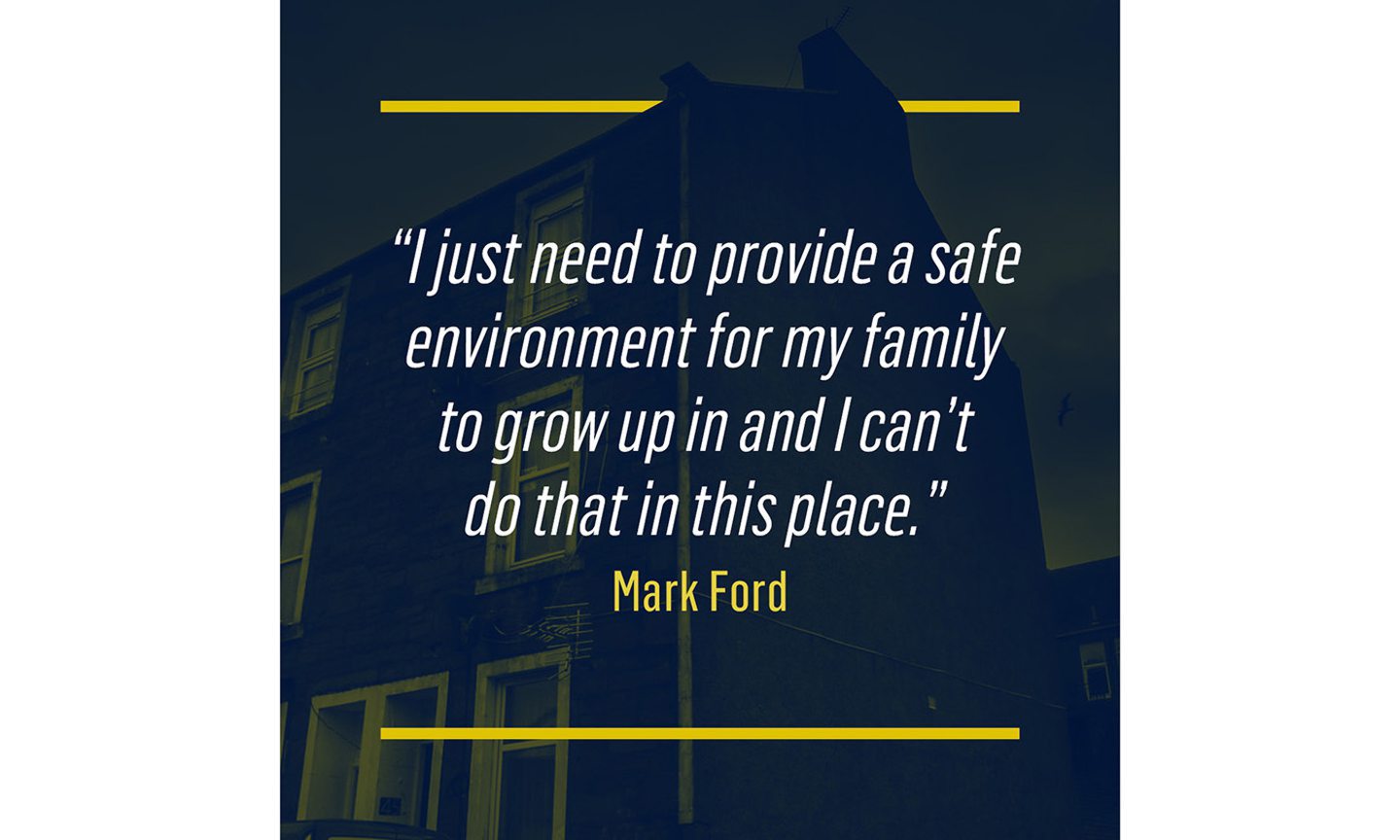
Mark said: “We got called by the electrician who was very apologetic and said he was getting nowhere with the letting agency. So, the work is not going to get done.
“I didn’t know what to do, we’re living here with no running hot water.”
The flat soon had issues with mould. The family said their daughter threw out two bags of clothes that were covered with mould.
The water tank itself was also covered in mould.
The family have had to find ways to compensate for the lack of hot water and heating.
They said they filled a basin with hot water from the kettle to wash dishes and sometimes themselves.
They bought themselves storage heaters to keep warm – though Mark said a number of sockets in his bedroom and their living room are broken.
Mark said he is embarrassed to raise his family in a home like this.
“I just need to provide a safe environment for my family to grow up in and I can’t do that in this place.”
Mark’s son Owen, who has a serious metabolic illness, needs round-the-clock care. Nurses visited and had no access to hot water to wash their hands. Mark said they often make remarks at the state of the property.
For Mark, this was the last straw. In November 2022, he submitted a formal complaint to Dundee City Council against Baker Bradley highlighting the disrepair.
Dundee City Council steps in
On December 20, 2022, the council inspected and found the home to be “below tolerable standard” (BTS) and deemed the home unfit to live in.
BTS is the standard of living and level of repair all homes in Scotland must meet. This standard is set out by the Scottish Government.
In 2022, Dundee City Council found 14 BTS properties in the city and has inspected three more in 2023.
If a landlord allows a property to fall below the tolerable standard, it risks being reported to a local authority and taken to a tribunal – where it can be ordered to bring it up to a tolerable standard through a repair enforcement order.
If a landlord ignores any orders from the tribunal or fails to carry out repairs, it can be brought back to a tribunal to face harsher penalties such as being reported to police, the landlord having its licence reviewed and being told to provide the aggrieved tenant rent relief.
As well as no running hot water, the council found other issues at Mark’s home.
This included the home not being wind or watertight and the front door not being able to shut properly.
The report, written by the council’s enforcement officer Stuart Cuthill, said the bathroom floor was sagging and plug sockets and a heater were not working. It also said the kitchen sink had a leak.
The council also asked for documentation, including the electrical installation and condition report and risk assessment, to establish whether or not the property is safe to live in.
A Dundee City Council (DCC) spokesperson said: “In response to contact from a private tenant at 51 North Street, the property was inspected and deemed to be Below Tolerable Standard.”
The council sent a list of faults to Baker Bradley and asked for action to be repaired. The council told The Courier it gave Baker Bradley the appropriate amount of time to respond to the faults in Mark’s home.
In February 2023, DCC sent an application to the Housing and Property first-tier tribunal for Scotland saying that Baker Bradley had “failed to carry out repairs or provide documentation as requested”.
The Courier met with Baker Bradley director Rizvan Aboobaker and Graham Bradley, believed to be a consultant and former director at the company.
We asked them for their response regarding the council report which ruled the home as being “below tolerable standard” and asked about the tribunal application.
Baker Bradley told The Courier that they disagreed with the council’s assessment and said they did not believe the home is BTS.
Mr Aboobaker said he had sent technicians to fix the hot water tank in 2019 but had since believed the repairs had been completed and said Mark did not notify him of any more outstanding repairs.
Mr Bradley previously claimed Mark was “telling lies”, owed £3,694 in rent, was not letting tradesman inside the property and was trying to get a council house.
Baker Bradley said it had sent texts to Mark warning him he was in arrears.
Mark denies being in £3,694 arrears for his rent, which he says he pays in cash, but said he had withheld this month’s rent following the council application to the tribunal.
He also said he is on the council house waiting list as he wants to get out of the private market and has not deliberately turned workers away apart from when his son was in hospital in early 2021.
In recent days, some things have improved for Mark and his family. Since the council submitted their application to the tribunal, workers have successfully carried out repairs listed on the council’s inspection. This includes replacing the bathroom sink, the cooker and giving the home hot water again.
Baker Bradley has two registered directors, Mr Aboobaker and Elaine Bradley as well as one former director, Graham Bradley.
Each member has been named separately as a landlord in four other housing tribunal cases since 2018. All three have been taken to a tribunal where the panel found they had failed in their duty as a landlord.
In one case dated May 2022, the tribunal involving Mr Bradley said it was contacting the police as a gas safety certificate for a property had not been forthcoming – an offence which can lead to fines and up to six months in prison.
The property in question was managed by Baker Bradley but Mr Bradley said that he should never have been named in the tribunal as he was not the landlord or owner of the property.
Dundee Citizen Advice Bureau’s ‘worrying’ reports of disrepair
Dundee’s Citizens Advice Bureau (CAB), sees cases like Mark’s daily.
Andy Scullin, a social policy coordinator who has been at CAB for 10 years, said: “The majority of landlords, and the letting agents they employ, appear to take these legal duties seriously. But we are still seeing a worrying number of cases where landlords are ignoring their legal obligations.”
Some of the most common cases CAB handle include:
- Black mould
- Disputes around responsibility for repairs between owners and tenants
- Inadequate heating systems
- Water leaks
- Damp from leaks in ceilings with no response from letting agents
Andy added: “As for the repairing standard, from our case evidence, it would appear that some landlords feel that this does not apply to them. The consequences of this failure to comply with the law can be serious for our clients.”
Outstanding repairs can lead to a number of “detrimental” issues for Dundonian tenants, Andy said. These issues can include serious repercussions on the tenant’s health which in some reported cases have resulted in death.
In Rochdale, England, two-year old Awaab Ishak died from respiratory issues caused by mould in his family’s rented home.
The two-year old’s father repeatedly complained about the home’s condition to his landlord.
Andy said: “When Awaab Ishak in England died as a result of exposure to black mould, advisers at Dundee CAB expressed shock but not surprise – more a weary sigh of recognition given the numbers of Dundee rents plagued with black mould.”
Some will ask why tenants like Mark doesn’t just move. Mark said, he has tried but describes the experience of looking for a new place to live as a “nightmare” due to rising rent costs and high demand for housing.

Mark said he either can’t afford other properties in the private sector or the ones they can afford are in high demand, with nearly every viewing fully booked by other couples and families.
Mark would also require a three-bedroom home for his family. His daughter currently sleeps in their living room and with a three-bedroom home she would finally get her own room.
However, three-bedroom homes have experienced the highest rise in rent across Dundee.
According to CAB, this all adds up to making Dundee an increasingly difficult city to rent in.
Andy Scullin, of CAB, added: “There is a desperate shortage of good quality rental accommodation in Dundee, a disproportionate number of repairs issues related to tenements, and long waiting lists for local authority and housing association rentals.
“Your economic or personal circumstances may mean you have no real choice but to accept whatever is available, regardless of how dreadful it may be. This is the reality for many as more people pursue a limited supply of rents.”
Mark and other tenants also sometimes need references from their current landlord when applying for new tenancies, which is not always an option if the relationship has soured over outstanding repairs. Landlords have no legal obligation to give a reference to a former tenant.
The Scottish Landlord Association, an organisation that supports, lobbies and campaigns for its members in Scotland, said that most landlord do comply with the rules but more work is needed to root out “rogue” ones.
John Blackwood, chief executive of the Scottish Association of Landlords (SAL), said: “This is also important for landlords so that rogue actors can be effectively pursued so as to allow the overwhelming majority of landlords who do comply with the rules to continue to provide high quality homes across the country.”
The Scottish Government and local authorities are aware of the problems Dundee and other parts of the country have when it comes to disrepair.
Out of that 84%, “79% have had issues with their privately rented homes.”
It doesn’t end there with 51% of private renters in Dundee responding to the survey that they had “experienced mould and damp within their homes”.
On March 1, 2023 the Scottish Government announced new repair standards in the private sector and set a 2024 deadline for landlords to comply. The new standards aim to “improve the condition of private rented property, make homes safer and ensure consistency between the social and private rented sectors”.
Dundee Landlord Accreditation scheme
In its attempts to assist tenants, Dundee City Council set up the Dundee Landlord Accreditation (DLA), a list of landlords the council deemed as “professional and reputable”.
Launched in 2006, the accreditation offers an answer to the question of how to verify good landlords in Dundee. The accreditation scheme is overseen by the private sector services at Dundee City Council.
The DLA’s website states: “The aim of DLA is to raise the standards in the private rented sector by encouraging landlords to maintain their properties in a safe and decent condition, in good repair and with a good standard of management.”
The DLA promises to uphold this standard by requiring the landlord to be open to random property inspections to check if landlords are doing all they should.
Dundee City Council advertises these inspections as ‘random’ and told The Courier it does “not give the landlord/letting agent any notice of intended inspections”.
However, a freedom of information request revealed the accreditation scheme has not performed any random inspections in the past five years.
We can reveal that the DLA has not completed a single random inspection since June 2016.
The scheme peaked at 66 inspections in a single month in February 2009.
Between April 2011 and May 2016 not a single inspection was carried out…
Dundee City Council said only two landlords have ever been removed from the scheme because they “no longer met the required standards for membership”. Those removals occurred in 2008 and 2009.
The authority also added “inspections are carried out where a complaint has been received”.
A spokesperson for Dundee City Council said: “It is clear that over the lifetime of the scheme some issues with standards have arisen, and while the council has some influence, and ultimately statutory powers to act in this area, it should be noted that the primary responsibility for a property lies with its owner.”
Dundee City Council’s powers
As well as creating accreditation scheme, the council has other powers that could help tenants.
Dundee City Council can issue “work notices” if landlords allow a property to fall below the legal standards.
The Housing (Scotland) Act 2006 allows local authorities to even carry out repairs themselves if an owner or landlord fails to do so.
It is seen as a more direct way of dealing with issues in the private sector.
A spokesperson for Dundee City Council said: “Most property owners and letting agents in Dundee maintain properties to an acceptable level, where they do not the council has used its powers where appropriate to seek to bring about the necessary improvements in standards.”
We asked Dundee City Council how many work notices they had issued in the private rented sector since 2012. The number was zero.
The council followed up to say that it has “not served any since their introduction”.
Instead, it said its approach is to “encourage owners to carry out the necessary repairs to their building and we offer grant assistance and missing shares where that is appropriate”.
Taking your landlord to a tribunal
In 2017, the Scottish courts formed a new tribunal called the Housing and Property Chamber and first-tier tribunal for Scotland. This tribunal was created to focus on disputes in the private rented sector.
Such tribunals consist of two panels: the Private Rented Housing Panel and the Homeowner Housing Panel.
The disputes dealt with are mostly repairs and rent disputes. Since 2018, the tribunal could also hear cases involving letting agents who may have broken the Letting Agent Code of Practice.
As part of this investigation, The Courier collected details of Dundee cases that went through the housing tribunals.
We created a map to show the cases where tenants felt they had to take their landlord to a tribunal. All tribunal decisions are made public but our map allows this data to be easily accessed and searched.
The Courier spoke to six tenants who felt they had no other choice but to take their landlord to a tribunal and hoped their landlord would be issued with a repair enforcement.
A repair enforcement order can be issued by the tribunals after finding in favour of a tenant during a tribunal. The enforcement orders the landlord to carry out repairs within a set time period.
Since 2016, Dundee has issued more repair enforcements than anywhere else in Scotland outside Glasgow.
The Housing and Property chamber could not say how long on average a case would take to pass through the tribunals but our analysis of the previous cases found that tenants can spend months and even more than a year trying to find resolutions.
On the Scottish Government’s website for tribunals, it states that the process “can be stressful” and “it’s usually best to try to find another solution”.
Experts say the number of those going to tribunals makes up only a small portion of those struggling with disrepair due to tenants’ hesitancy to pursue legal action.
Andy Scullin, from CAB agrees, having seen first-hand the reactions of tenants whenever advice involves taking legal action.
Andy said: “When we examine this (tribunal route) with a client, few are keen to pursue it. Others are put off by the idea of engaging with a legal procedure, albeit a less formal one than a court.
“This could be because of the time it might take, but more commonly it will be because of the potential damage to the continuing relationship with their landlord, and the potential consequences to the tenant in terms of keeping a roof over their head.”
Nobody should be living like this
Miranda Johnson, 27, is a member of the tenants’ rights campaign group Living Rent and has herself experienced disrepair in her own Dundee flat. She joined Living Rent after she struggled with disrepair in her flat.
Miranda said she believes rent prices of a property should be tied to its condition and the helpfulness of their landlord.
Miranda said: “There is an oversight in quality with quality control and prices. you shouldn’t be paying hundreds and hundreds of pounds for a one-bedroom flat where your front door doesn’t even work. It’s just ridiculous.”
Andy, from CAB, called for harsher consequences for landlords who leave tenants in the conditions seen in Mark and his family’s home.
He added: “There needs to be a zero-tolerance approach to a failure to address repairs. It is the uncaring attitude of a hard core of individuals which results in some private sector tenants having to endure real misery. A situation made even worse for them by the current economic situation.”
Housing Tribunal Decision
In the four months following our investigation Mark Ford continued to pursue his landlord, Mark Westbrook at Fixrole Limited and the property manager Baker Bradley, in the Housing and Property Chamber.
Despite some of the repairs listed on their tribunal application being completed, there were still outstanding repairs for which Mark wanted his landlord to be held accountable.
On June 12, 2023, the First-tier Housing Tribunal found that Mark’s landlords did fail to comply with their duties under Section 14 of the Scottish Housing Act.
The tribunal found that the landlord failed to ensure that Mark’s home was of a “reasonable state of repair”.
The tribunal issued a Repairing Standard Enforcement Order to the landlord requiring him to carry out work on the property and ensure it meets the legal standard.
In reaction to the decision tenant Mark Ford said: “I’m over the moon with the decision. It doesn’t matter who you are, you have rights and sometimes all it takes is standing up for yourself no matter who you are.”
If you have been affected by any of the issues raised in this investigation, mould damp, disrepair or bad landlords and would like to know more, see our article on tenants’ rights.
If you would like to get in touch with our Impact investigations reporter Brendan Duggan please email brendan.duggan@dcthomson.co.uk
Credits
Words and interviews by Brendan Duggan
Photography by Mhairi Edwards
Data visualisations and scrollytelling by Lesley-Anne Kelly
Graphics by Mhorvan Park
SEO by Jamie Cameron
Story design by Cheryl Livingstone
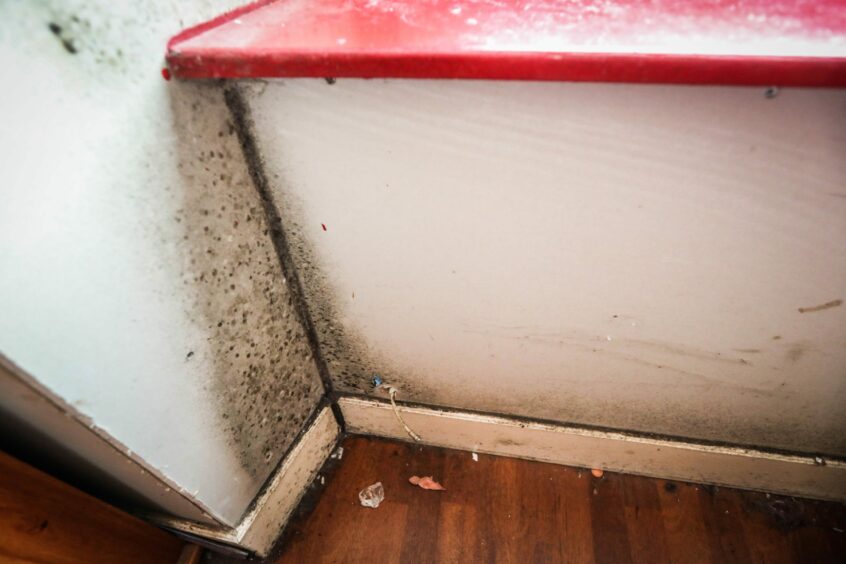
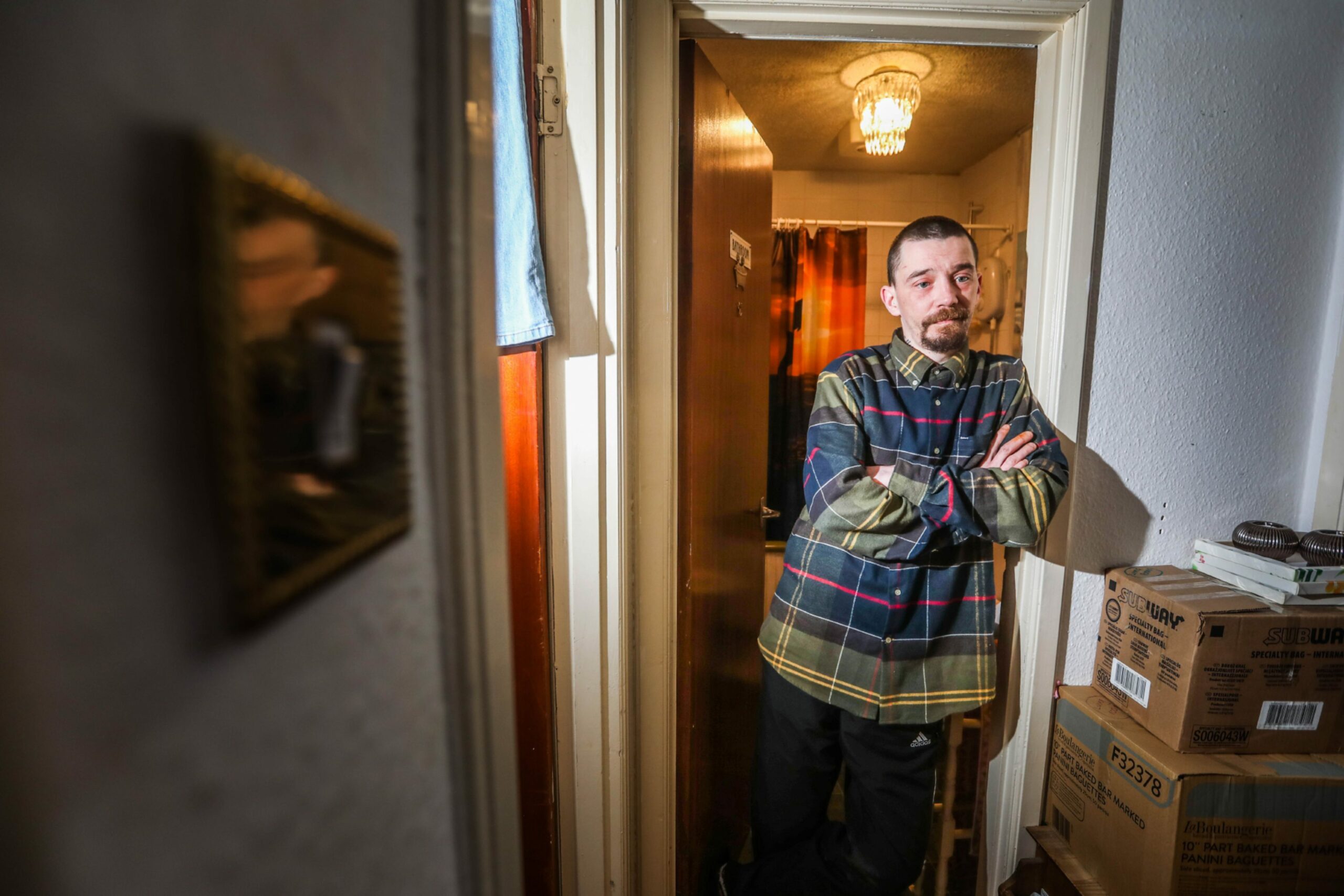

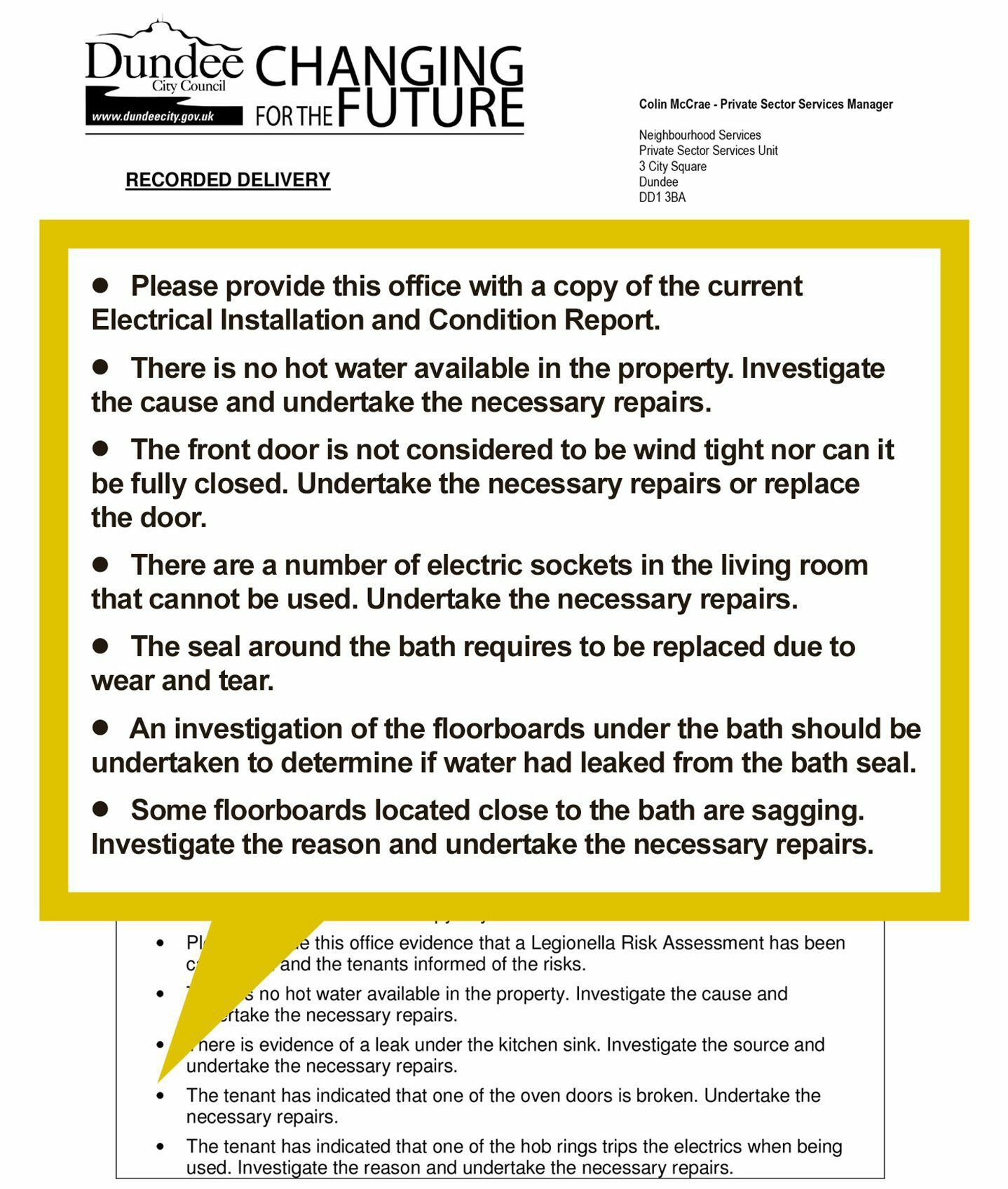
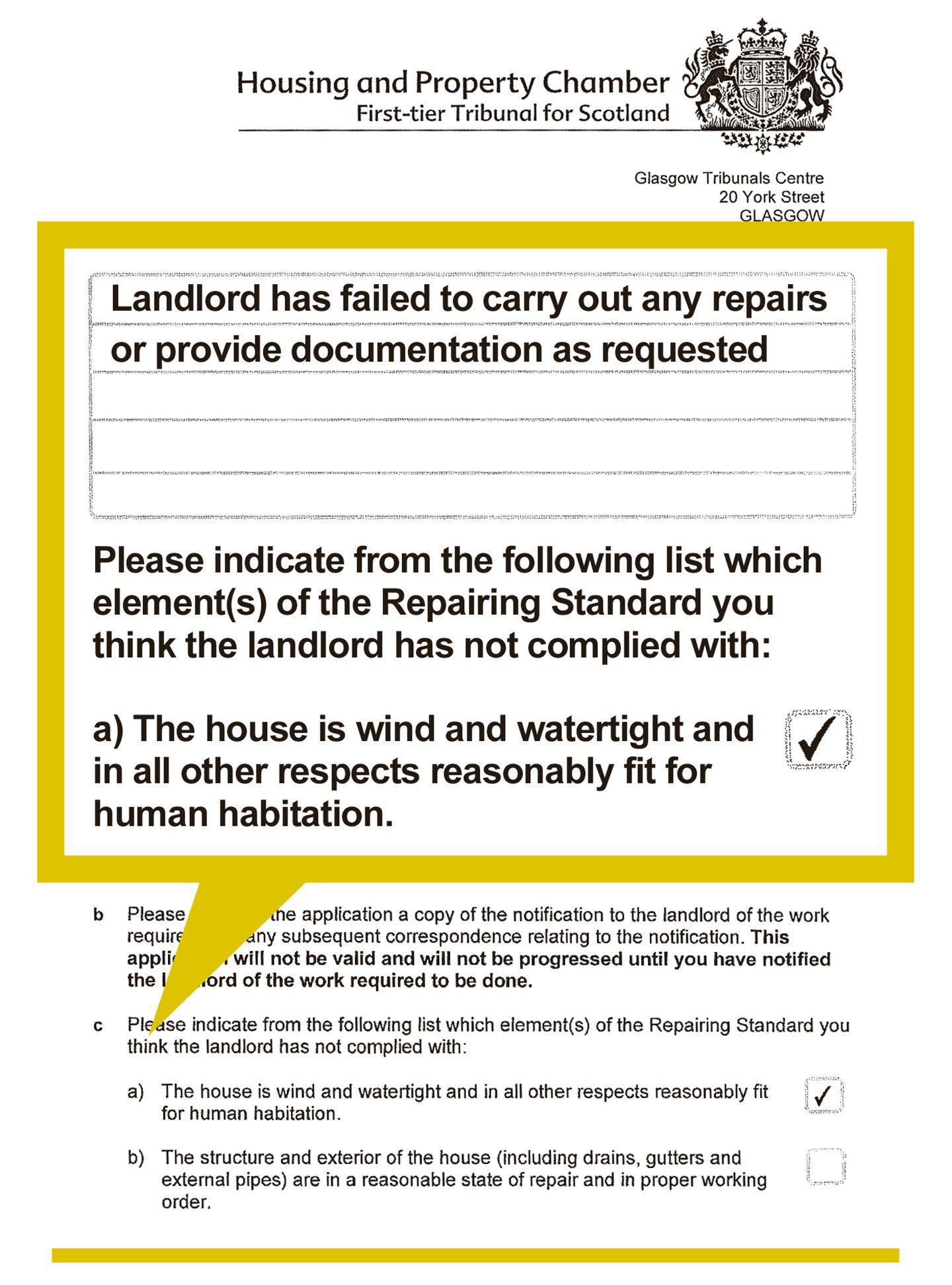
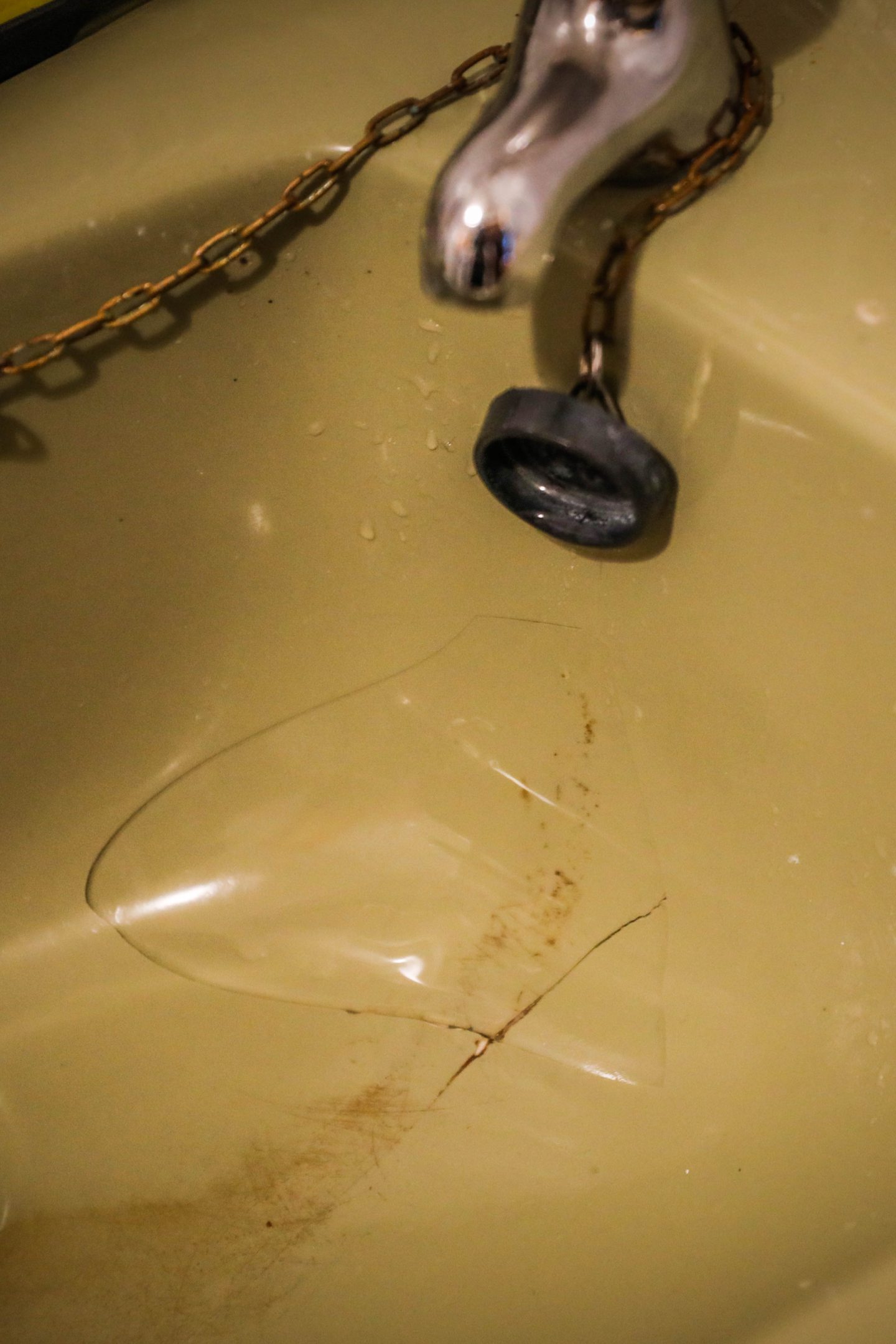

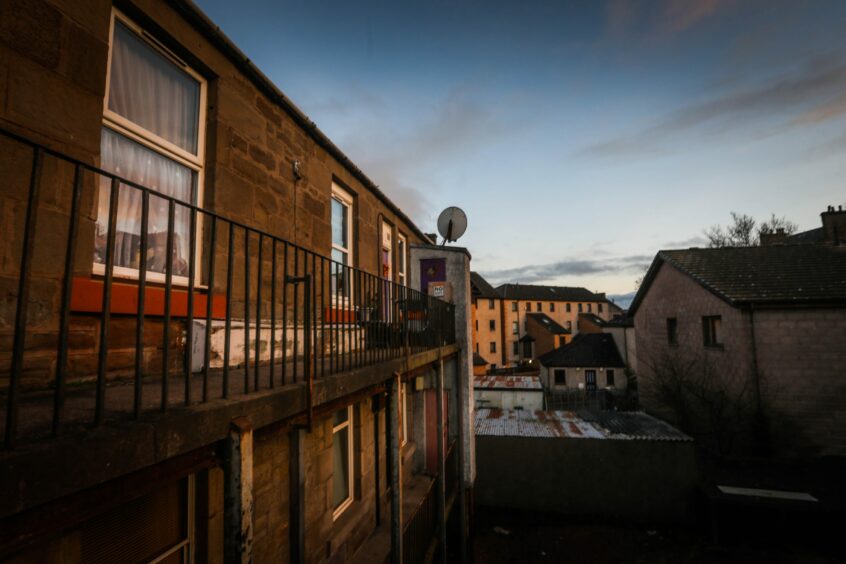
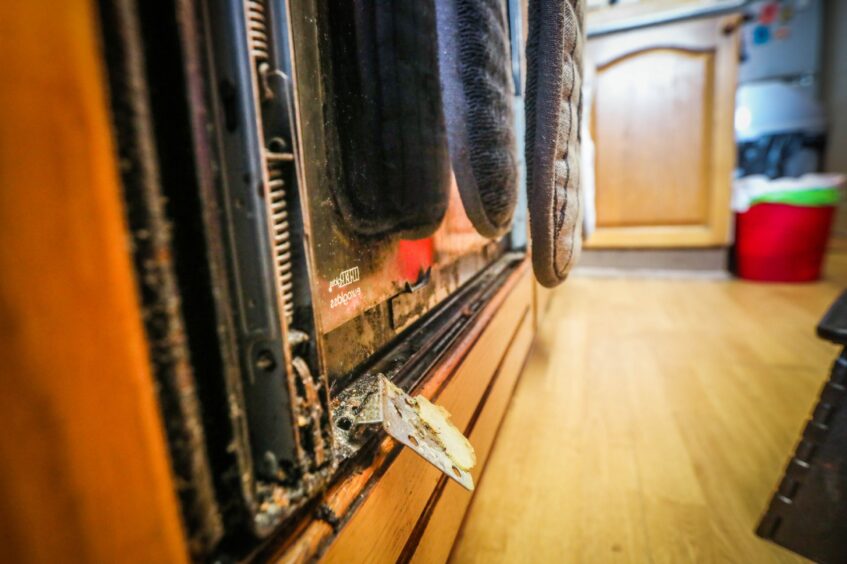

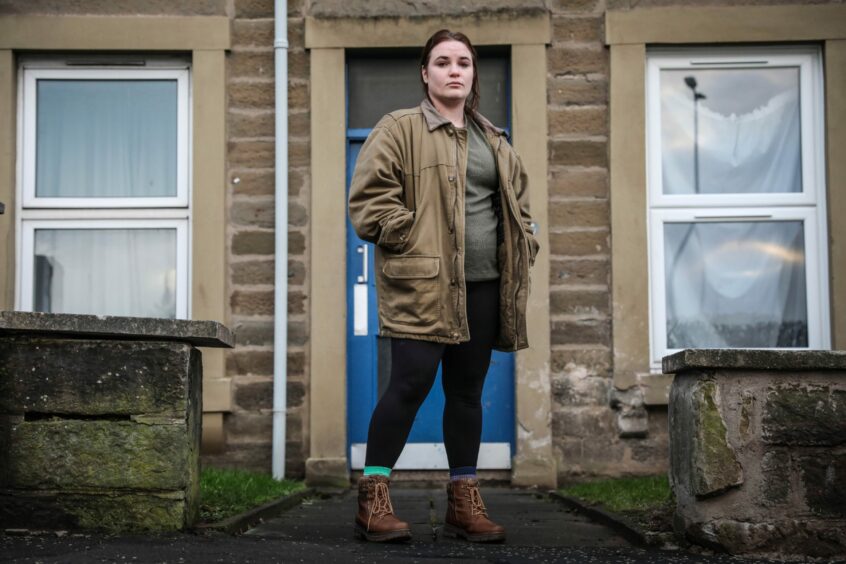


Conversation